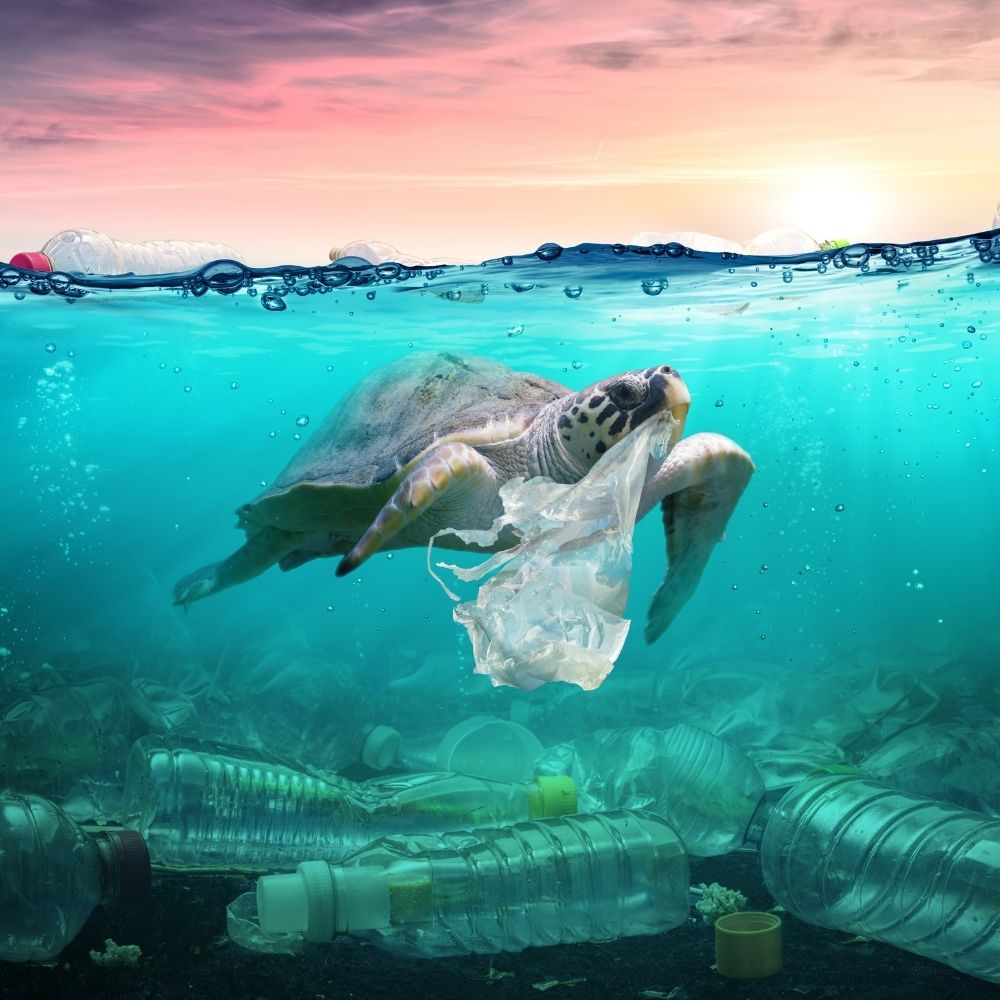Our oceans are drowning in plastic waste, and it is not only plastic waste that affects our oceans, chemicals, medicines and pollutants also affect the lives of sea creatures. According to WWF estimates, between 207,000 and 353,000 tonnes end up in the sea every year. These floating rubbish dumps in the oceans are estimated to be the size of Central Europe. The oceans are very important for our environment and the existence of humans and animals, and need our attention more than ever.
A very large part of the gigantic waste dumps consists of plastic. By 2050, WWF estimates that almost all seabirds will have plastic in their stomachs. The plastic in the stomach affects the birds’ digestive tract, and the animals starve to death from the constant feeling of being satiated. Whales, seals and harbor seals suffer from the discarded ropes and nets in which they get caught and can hardly escape without help. The animals suffer damage and their habitats are additionally destroyed. For example, coral reefs, they are affected by the deposition of plastic waste. According to several scientific studies, microplastic particles have already been found in many fish species, which are used, for example, in cosmetics or selected industrial products.
The biggest cause of waste in the sea is the mass spread of single-use plastic. In addition, in most developing and newly industrialized countries, there are no suitable recycling or waste collection solutions to collect this single-use plastic from the consumer. There is a lack of financial resources, state infrastructure and regulations that force companies and product manufacturers to dispose of and recycle waste properly. Due to a lack of waste management, proper recycling cannot be carried out and as a result, less than 50 % of the waste can be collected in the affected countries. In many regions in Southeast Asia, tonnes of waste are therefore dumped into the sea through rivers, such as the Pasig River in the Philippines. According to the Greenpeace organization, this is one of the most polluted rivers in the world. However, plastic waste is not only carried from the land via the rivers into the sea. In fisheries, too, it happens time and time again that rubbish is dumped in the middle of the sea, despite laws and bans, and no one notices.
The washed-up rubbish not only looks unsightly on the beaches, but is also a danger to us humans. Even agriculture suffers greatly from the washed-up rubbish. Very large areas of fields are polluted by plastic bags or other pieces of rubbish that are blown in. And these are still the smallest problems. More threatening is the plastic, which produces greenhouse gases such as methane and ethylene in the water. The mass intake of rubbish into our oceans adds up to a lot of uncontrollably released gases that contribute to atmospheric pollution.
Absorbing about 30% of the human-made greenhouse gases, our oceans are natural and very important air cleaners that we can use. The surface water absorbs the carbon dioxide and is then transported by ocean circulation and mixing processes to the seabed, where the CO₂ accumulates and is locked away over long periods of time. Currently, the oceans both absorb CO₂ and produce it again at the same time through pollution with plastic waste.
How can we as consumers contribute to the fight against plastic waste?
In the first step, pay attention to where waste is produced in your everyday life, and then avoid it. Replace single-use plastic with reusable products – use a cloth bag or shopping basket for transport, and look for unwrapped food when buying. Use glass bottles instead of composites or PET bottles and if waste cannot be avoided, make sure you separate your waist so that plastic waste can be recycled properly.
Everyone can make a contribution, because protecting oceans starts at home.
Together with our sister company 1CC, we also want to make a contribution and have decided to do without gifts and Christmas cards this year and instead donate to One Earth – One Ocean e. V. and support them in their mission to rid the world’s waters of plastic waste, oil and chemicals.
